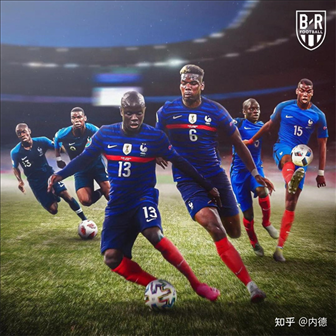According to CCTV5, the ranking of the European Football Cup has caused a lot of controversy. Some teams benefit from the weak opponents in the group match, while some teams suffer from the strong opponents in the group match. Is this fair? Does it affect the viewing and competitiveness of the European Cup? Let's take a look at some data and points
According to CCTV5, the ranking of the European Football Cup has caused a lot of controversy. Some teams benefit from the weak opponents in the group match, while some teams suffer from the strong opponents in the group match. Is this fair? Does it affect the viewing and competitiveness of the European Cup? Let's look at some data and analysis.
According to the competition system of the European Cup, 24 teams are divided into six groups, four teams in each group. In the group stage, each team plays a game with the other three teams in the same group. With the same points, the number of net goals, total goals, match results and other factors determine the ranking. After the group competition, the top two of each group and the third of the four best performers will be promoted to the top 16 for elimination.
This competition system seems fair, but in fact there are some problems. First of all, because the opponents in the group match are determined by random drawing, some teams may encounter weaker opponents, while some teams may encounter stronger opponents, which has caused some unfairness. For example, Italy, Switzerland, Turkey and Wales in Group A, Belgium, Denmark, Finland and Russia in Group B, and the Netherlands, Austria, Ukraine and Northern Macedonia in Group C are considered relatively weak groups, while England, Croatia, the Czech Republic and Scotland in Group D, Spain, Sweden, Poland and Slovakia in Group E, and France, Germany Portugal and Hungary are both considered relatively strong groups. This led to some teams being promoted easily because their opponents in the group match were too weak, while some teams were almost out because their opponents in the group match were too strong.
Secondly, because the ranking of the group matches determines the match of the knockout rounds, some teams may obtain a more favorable schedule of the knockout rounds because of the ranking of the group matches, while some teams may encounter a more difficult schedule of the knockout rounds because of the ranking of the group matches. For example, Italy in Group A and Belgium in Group B are all the winning teams in the group stage, but they met in the last eight due to the match arrangement in the knockout phase, while the Netherlands in Group C and England in Group D are both the winning teams in the group stage, but due to the match arrangement in the knockout phase, they met relatively weak opponents in the last eight, Czech Republic and Ukraine. As a result, some teams encounter strong opponents in advance due to the ranking in the group match, while some teams continue to have advantages due to the ranking in the group match.
To illustrate this, we can look at the following table, which shows the average world ranking, average European Cup ranking, average points, average goal difference and average total goals of each group, as well as the opponents and results of each group's advanced teams in the knockout phase.
| group |
Average world ranking |
Average European Cup ranking |
Average integral |
Average goal difference |
Average total goals |
Advance to the team |
Knockout opponent |
Results of knockout |
| A |
twenty point five |
ten point five |
four point five |
two point five |
four point five |
Italy, Wales |
Austria, Denmark |
Win or lose |
| B |
twenty-nine point seven five |
eighteen point two five |
four point two five |
zero point seven five |
three point two five |
Belgium, Denmark |
Portugal, Wales |
Win |
| C |
thirty-one point two five |
nineteen point two five |
four point five |
one point two five |
four point two five |
Netherlands, Austria |
Czech Republic, Italy |
Negative |
| D |
fourteen point two five |
nine point seven five |
four |
one point two five |
three point seven five |
England, Czech Republic |
Germany, Netherlands |
Win |
| E |
twenty-three point five |
fifteen |
three point seven five |
zero point two five |
three point two five |
Sweden, Slovakia |
Ukraine, Spain |
Negative |
| F |
seven point seven five |
four point two five |
three point five |
zero point two five |
four point two five |
France, Germany, Portugal |
Switzerland, England, Belgium |
Negative, negative, negative |
It can be seen from the table that Group F is the strongest group, with the highest average world ranking and the highest average European Cup ranking, but the lowest average points, average goal difference and average total goals, indicating that the competition in this group is very fierce and difficult. Moreover, the three teams in Group F met strong opponents in the knockout round and were eliminated in the end. On the contrary, Group C is the weakest group. The average world ranking and the average European Cup ranking are both the lowest, but the average points, average goal difference and average total goals are all high, indicating that the competition of this group is relatively easy and easy.












